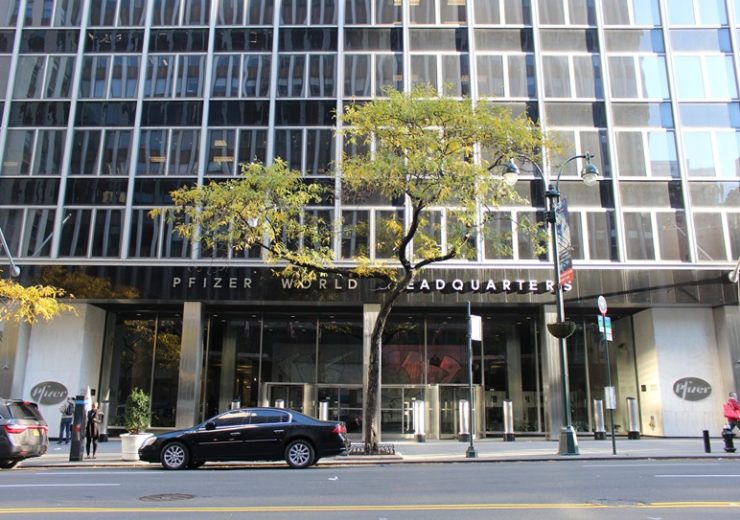Pfizer enrolled subjects for the Phase 3 Study of its 20-Valent Pneumococcal Conjugate Vaccine Candidate for the prevention of Invasive Disease and Pneumonia in adults

Image: Pfizer intends to publish results from the clinical trial after the completion of four-dose regimen. Photo: Courtesy of Coolcaesar/Wikipedia.
Pfizer has announced positive preliminary results of a Proof-of-Concept Phase 2 Study (B7471003) to evaluate safety and immunogenicity of its 20-valent pneumococcal conjugate vaccine (20vPnC) candidate, PF-06482077.
The study investigates 20vPnC for the prevention of invasive disease and otitis media caused by Streptococcus pneumoniae serotypes contained in the vaccine in healthy infants.
Pfizer senior vice president and vaccine research & development head Kathrin U Jansen said: “The initial three doses of 20vPnC in this Phase 2 trial provide preliminary evidence that the vaccine candidate in infants has an overall safety profile that is similar to Prevnar 13.
“20vPNC induced immune responses for all 20 serotypes in infants. These findings are encouraging and should support the program’s advancement to Phase 3. Once data with the fourth dose are available, we will discuss Phase 3 plans with regulators.”
Pfizer said that its drug candidate is comprised of 13 serotypes enclosed in Prevnar 13 (Pneumococcal 13-valent Conjugate Vaccine [Diphtheria CRM197 Protein]) along with seven additional serotypes dubbed 8, 10A, 11A, 12F, 15B, 22F, and 33F.
FDA grants Breakthrough Therapy Designation for 20vPnC in September 2018
In September 2018, the US Food and Drug Administration (FDA) has granted Breakthrough Therapy Designation for 20vPnC, for use in the prevention of invasive disease and pneumonia in adults ageing 18 years or more, following the Fast Track designation in 2017.
The company said that the B7471003 is a randomized, double-blind Phase 2 proof-of concept study to evaluate the safety and immunogenicity of 20vPnC in approximately 460 healthy infants.
Under the study, subjects were randomized equally to receive a four-dose series of either 20vPnC or Prevnar 13 at 2, 4, 6, and 12 months of age.
Local reactions and systemic events were recorded for 7 days after each vaccination, and adverse events were also recorded in a similar way to the Prevnar 13 infant programme.
Pfizer intends to publish results from the clinical trial after the completion of a four-dose regimen, and analysis of safety and immunogenicity data.
Jansen added: “If successful in Phase 3 and approved, 20vPnC may help protect infants against seven additional Streptococcus pneumoniae serotypes, which represent prevalent circulating global disease strains today, in addition to those contained within Prevnar 13.”
